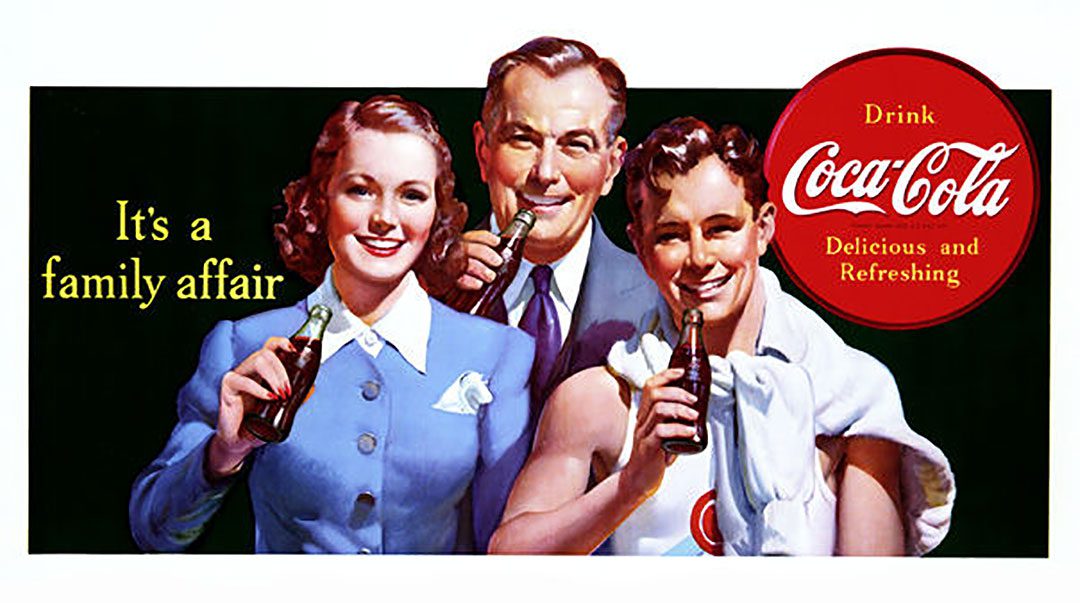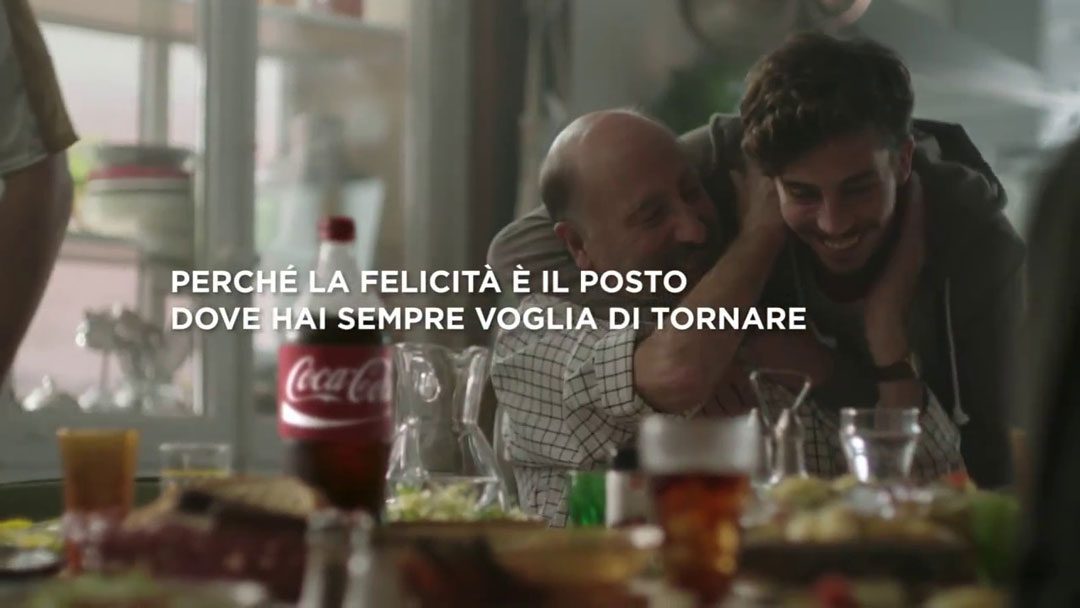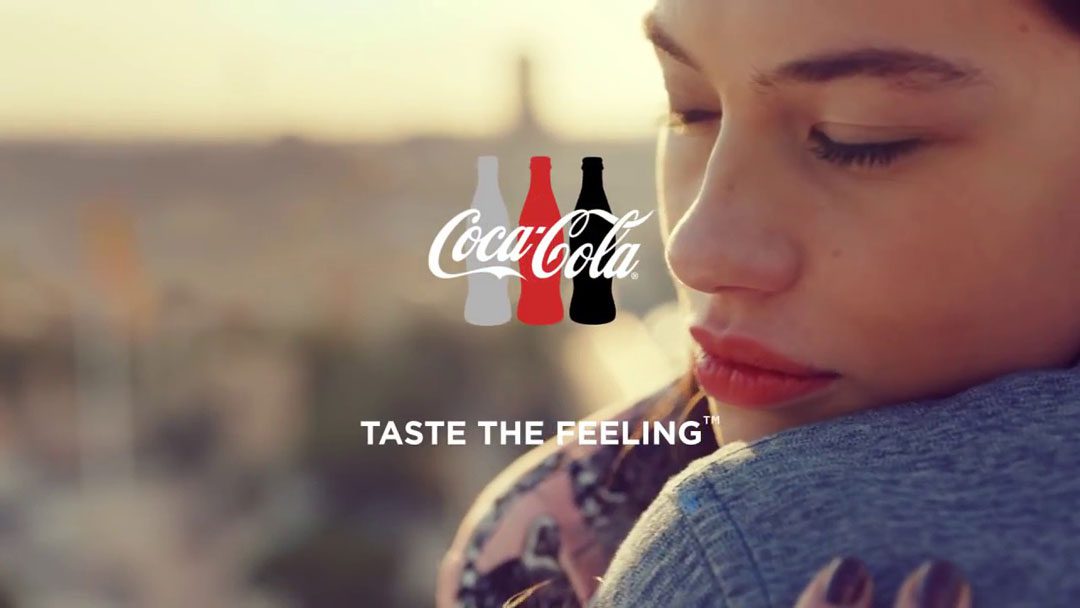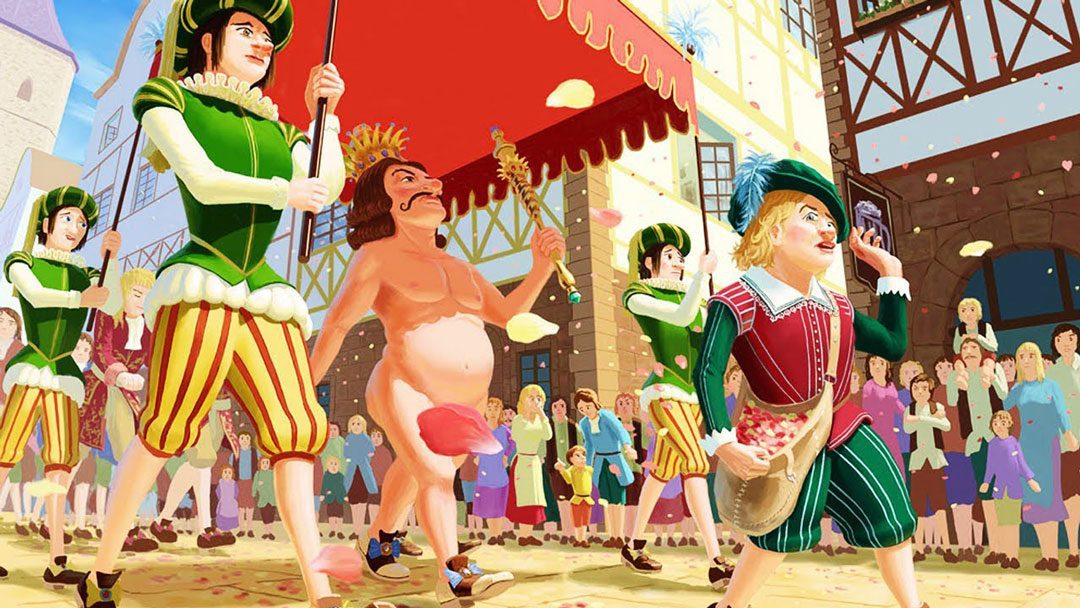Today, dear Umberto Gambino tags me on Facebook in the latest article published in Wining, with a title that cannot leave me indifferent: 'Why does wine communication suck? All the most frequent mistakes made by producers'. With the kind permission of Reka Haros, author of the original article that appeared on thebuyer.net, the Wining staff translated the article for the Italian audience. I personally believe that Italian producers have Umberto to thank sincerely for their work, it is a very nice article that I absolutely recommend you read in full. In this article I will quote some excerpts and tell you about theCoca-Cola Effect in Wine Marketing, a sort of WOW of emotion. I had been wanting to write something for a while about my work as a Wine Communicationso I thank Umberto for giving me this interesting insight.
Although I do not drink Coca Cola as I consider it highly harmful to the body (like all other sugary carbonated drinks), today I want to talk to you about the Coca-Cola Effect as a pillar of Marketing and Advertising. Are you wondering why for effective wine marketing you should communicate wine with the Coca-Cola Effect? Well I chose Coca Cola for these 3 reasons:
- Coca Cola is not a wine producer, so I can speak my mind without conditioning and 'biased' references;
- The grandfather of Coca Cola was born in Italy, and was originally a wine: the Mariani Wine;
- Coca Cola advertisements, for over 100 years, should inspire all wine producers.

'Taste + emotions' - that's Coca Cola, always.
Wine Marketing #1- Do you really think this will impress me?
Some of the reasons why wine communication sucks are clear as day in this small survey conducted in 2013, which examined 30 consecutive Wine Spectator covers between 2010 and 2012 and inspected 872 different advertisements. Those who pay attention to wine advertising will not be surprised to learn that these advertisements were all more or less identical. In this case, the 86% featured an image of a bottle and the 66% referred to some sort of geographical element.
Today, if you open a well-known wine magazine, the advertising images are not so different. Looking at today's images through the eyes of an ex-marketer, they are not only boring, but they fail to communicate a distinct and well-defined message. Readers' eyes have not only been accustomed to seeing the same types of images over and over again, but the ads fail to promote any emotionally relevant information to the reader. How can one remember any of these ads when none of them are memorable?
Advertising with emotional content is on average nine times more effective in driving sales than non-emotional advertising, as shown by the WARC events report, 'Procter & Gamble values emotional marketing', by Steven Whiteside, March 2015.
Recognition does not sell. Geography does not sell. Sure, they can certainly get someone to take you on, but do you want this someone to tell you that you are good and beautiful or to buy your wine? You need to sell. There are wine producers who don't invest €1 in advertising and there are wine producers who invest thousands of euros in advertising, without saying the famous 'why' to consumers. Both are waiting for something to happen, namely that consumers will buy their wines. The reality is that consumers will buy the wine of those who, in their minds, will make them look good. Taking it for granted that the consumer 'knows you' or spending money to make you stand out is almost pointless.
In this advertisement the Coke bottle is not even in focus and occupies a very small part of the whole scene, but it is noticeable. There is no giant advertisement of the factory that produces Coca Cola. The protagonist is the potential consumer in a scene of everyday life. The text is emotional, but really emotional. Not emotional of the kind that just thrills the wallet of those who create it.

Coca Cola celebrates authentic and real moments: exciting contexts and product at the centre.
Wine Marketing #2 - The Coca-Cola Effect
But in 2017, the wine industry continues to focus on putting the product first. Why do we still think that putting images of bottles, all the same except for the labels - e these also usually suck - is an effective form of advertising?
If you want to sell, you have to make love to your potential customers, not ask them for a service.. I know: I used a strong phrase. But I believe there is no other way to say it as effectively. The problem with wine communication is that advertising agencies, armed with creative egotism, encourage wine producers to make love to themselves. Ohibò, just these days I am writing the plot of three advertising videos for a splendid Abruzzi estate... and I have watched with the owner and alone a number of winery videos to make my head spin. Some done well, very well indeed. Some done badly, very badly indeed. Some won awards. Others could not even win the consolation prize of a village 'cinevent'. But they all have one thing in common: they are boring as hell. I, who had every interest in seeing them, couldn't make it to the end, so how can you expect your potential customer will? How many bottles of wine do you think they will sell you? Think about it, how can you think that your potential consumer will choose, or rather REMEMBER, your wine after seeing, for example, a beautiful but banal photo of your bottle or your vineyard in a magazine, on Facebook or anywhere else? With all the ones he sees, then!

'More than making us know a product, advertising must make us want it'. Roberto Gervaso
Wine Marketing #3 - The Emperor's Advertising Agency
We are driven to rely on data, on Big Data and look at the numbers representing the correlations between them, but in these hectic times we forget to look at the data that Big Data cannot explain. The 'why' of consumers. We know the who, what, when, where and how of our consumers' habits and behaviour, but we are not digging deep enough in search of their 'why'!
Numbers are not feelings or emotions, and for example, feelings of nostalgia or pride cannot be measured through digital action. We need to remember this and make sure we connect with our consumers through their emotions, not just through their digital behaviour.
Gentlemen of Advertising, you who do the 'Patacca' on Big Data, you have sincerely tired with this story that Advertising is not measurable. I don't care. The wine producer who spends 1, 10, 100, 1000, 100,000 € on advertising wants to count at least the return on his investment. And frankly, I agree with him. Advertising is done to sell. Sales are measurable. If before he met you wine producer X was selling X number of bottles, after spending Y he will have to sell X+n number of bottles, right?
I am reminded of a Danish fairy tale by Andersen that I (re)read just a few days ago by the lakeside called 'The Emperor's Clothes'. Do you know it? It is about a vain emperor blinded by the cult of exteriority who spent all his money on luxurious clothes. One day, two swindlers new in town spread the rumour that they were the best of weavers, capable of transforming precious cloth into a very light fabric, invisible to the eyes of fools. The emperor commissions the two swindlers to weave the cloth and fill them with gold, and during the work he sends two trusted ministers to see how it goes. The two weavers, who have woven the air, pretend to show them a magnificent cloth. The emperor's two envoys, so as not to appear stupid, pretend to see it and praise its beauty when they return to the emperor. When the two cheating weavers pretend to make him wear the finished dress, the emperor decides to pretend to see it so as not to appear stupid, and he too praises its beauty. The emperor parades around without a suit while the people praise the sovereign's great elegance, although they do not see anything, until a child cries out innocently "The king is naked!". As if nothing had happened, the sovereign continues the procession with the two ministers behind him pretending to hold the train.

To me, this tale reminds me so much of the advertising agency on duty when they tell you that the effectiveness of advertising is something that cannot be measured. Advertising is not Art made for contests and to be understood only by creatives. And I am tired of seeing ugly, self-aggrandising and ineffective videos, labels and posters just because clients play the part of the emperor's ministers... then watch out! Advertising cannot be measured 100% right away and changing advertising agencies like you change underwear is wrong anyway. But wine producers who play the part of the emperor are also very numerous: to sell wine it is not enough to make wine and dress it well, even if it is a good wine and the label is beautiful.
'Advertising is selling air, but it is that air that keeps the mill turning'. Marcel Bleustein
Wine Marketing #4 - Do you want to sell your wines to 10 know-it-alls, 1,000 sommeliers or 100,000 consumers?
Then there is this obsession with the didactics. "How to be a wine expert - tips from XZY". is a title I see everywhere. Of course, I understand, it is important and I believe in the power of education. [...] He created this notion that in order to even say 'wine' you have to know wine, that if you do not know enough about WINE then you are not suited to the trade or even simply the consumption of wine. This type of communication has contributed to the exclusive wine, while the our alcohol competitors are mainly inclusive and accessible in their communications.
Worse than the winemaker who speaks ill of other winemakers, there is only the winemaker who basks in making a wine that only pleases the enofighetti. Ah well, then! How many potential enofighetti are there? And of these, how many will potentially choose you? Are you sure you are so oenophile for them? Perlage Suite is also an educational wine blog, so the preaching comes from a pulpit for which teaching is really important. The laudable desire to educate consumers and help them choose a good wine is one thing, but wanting to position one's own as an exclusive product is quite another. Read that right: EXCLUSIVE, meaning that it excludes a segment of the public from its potential consumption. No, I'm not in. It is one thing to target one's audience, it is another to exclude a part of it a priori. Have you ever noticed that Coca Cola is in the hands of the manager of the multinational company just as much as the eighth grade student? Then let's face it, I was not born learned. I acquired my skills by studying, and many years ago I knew nothing at all about wine. Who's to say that today's average consumer won't be tomorrow's oenophile?
'The best advertising is a satisfied customer'. Bill Gates
Wine Marketing #5 - Thrills
Although many of us consider ourselves to be thinking creatures with feelings, biologically we are feeling creatures who think'.
Jill Bolte Taylor, neurologist
'Most advertising does not so much appeal to reason as to emotion'. E. Fromm
So instead of focusing so much on education, why not focus a little more on the creation of experiences? Customers are not paying for the wines they are tasting, but they are paying for a great story that they can tell their friends. And this story must make them look good and interesting in the eyes of others. At that point, you and your brand become an unforgettable experience in the minds of your customers, so they will know your story. And guess what? They will not only spread the word about your brand, they will recommend it, and in the process they will also have learnt a lot about wine.
To sell you have to create beautiful images where your wine is part of people's lives, a discreet protagonist in the most relevant moments of their lives.

"People do not buy products and services, they buy relationships, stories and magic". Seth Godin
Wine Marketing/6 - Lowering prices means limiting choices. But only yours.
And finally, wine communication It sucks when it's all and always about price promotions. "Over time, however, in a competitive market, the quest for the bottom line leads to brutality. The brutality of damaging suppliers, the brutality of compromising your morals and your mission. Someone else is always willing to go a penny lower than you are and to compete, your choices become more and more limited.
Seth Godin
Dear wine producer, remember this well: there will always be someone who can win the price war more than you. There will always be a winery that can buy more advertising than you. There will always be a winery that can lower the price more than you. If you play the price game and lower the price to the point of no profit, you are not limiting the consumer's choices. You are not inducing him to buy you. The only choices you are limiting are your own. The price war makes you limit everything, from the quality of what you put in the bottle to your life. The price war that forces you not to pay your suppliers creates negative publicity around you that sooner or later will harm you. The price war makes you hit rock bottom, but above all it does not make you a 'first choice' for any consumer. Do you believe that Louis Vuitton is an object of worship and desire for a large segment of the population because it is cheap, in fact very cheap?

No one wants what everyone can have. Nobody chooses you because you are the cheapest, you only have to turn the corner to find someone who costs less than you. What makes the consumer choose your wine is how you are able to make them feel while they are drinking it. Regardless of whether your wine costs 10 € or 100 € a bottle. Find out within yourself how you want your potential customer to feel while drinking your product. Make love to this idea and then advertise it.
"Investing in advertising in times of crisis is like building wings while others are falling". Steve Jobs
Advertising is that Quid you give to your wine to sell more bottles, more often and after you have raised prices.
This is my way of communicating wine to my customers.
For me, everything else is fluff.
Cheers 🍷
Chiara
P.S. I also recommend you read this Wine Marketing article: Famous Chinese actress signs Tenuta Pianirossi's Italian wine - winning choice or not?

